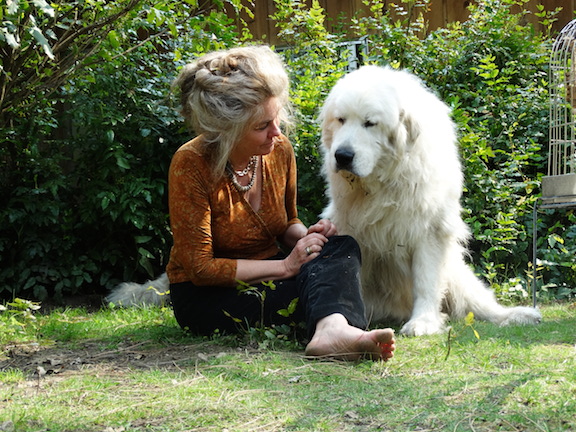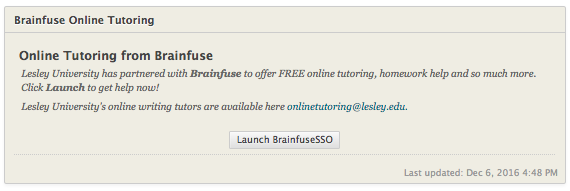
Gay Bradshaw at sanctuary with dog.
Gay Bradshaw has recently designed and taught Animal Minds: Exploring animal cognition, emotions and experience, a new online course for Lesley University, focusing on the exciting new field of trans-species psychology. Trans-species psychology reflects science’s understanding that humans and animals have common capabilities to think, feel, dream, aspire, and experience consciousness. While neuroscientists knew that elephants, orcas, dogs, cats, parrots and all other vertebrates share with humans the same brain structures and processes, it was Gay’s discovery of Post-Traumatic Stress Disorder (PTSD) in free living elephants that galvanized the new field. Similar to humans subjected to violence, abuse, and war, elephants are vulnerable to the trauma caused by widespread poaching, culls, and shrinking habitats. Animal Minds uses trans-species psychology as a lens to explore animal minds and the effects of stress and trauma.
Gay collaborated with eLearning and Instructional Support to design her course. Various topics covered in the course are presented through voice-narrated video lectures, readings, and other visual and audio media. Course concepts are illustrated with a diversity of species, including elephants, great apes, orcas, parrots, reptiles, fish, and farmed animals. Also threaded throughout the course is a critical fieldwork component through which students experience, study and reflect on direct contact with animals in the field. Course learners connected with local organizations such as animal shelters and sanctuaries where they engaged in hands-on work with animals in need. In addition to study questions that explored course topics, students reflected on the course content in relation to their field experience in the Animal Accompaniment Blog. The blog also served as a virtual community space for ongoing sharing and conversation with classmates.
About Gay Bradshaw:
Gay holds doctorate degrees in ecology and psychology, and has published, taught and lectured widely in both the U.S. and internationally. She is the author of Pulitzer Prize-nominated Elephants on the Edge: What Animals Teach us about Humanity, an in-depth psychological portrait of elephants in captivity and in the wild. She is the Executive Director of The Kerulos Center, based in Oregon where she cares for The Tortoise and The Hare Sanctuary. Kerulos is a grassroots, collaborative, and non-profit organization which builds and maintains cross-disciplinary and international programs seeking to empower individuals and groups to create a world in which animals live in freedom and dignity.
For more information about the Animal Minds course or Gay Bradshaw, please contact elis@lesley.edu or John McCormick (jmccormi@lesley.edu)


